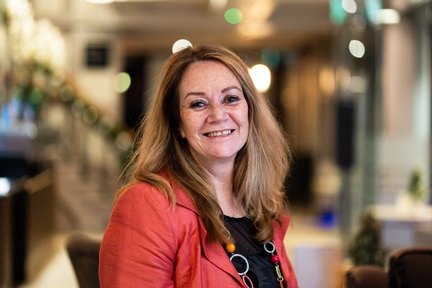Early Years Professional launches petition in battle to gain Qualified Teacher Status
An experienced Early Years Professional (EYP) has launched an online campaign calling for action from the Department for Education after she was refused access to a course offering Qualified Teacher Status (QTS), despite having a first class degree in Early Childhood, Education and Care.
![]() Julie Dervey
Julie Dervey
Julie Dervey, from Hedon in Yorkshire, was left “speechless” when Teach First said her qualifications were not enough to secure a place on its early years programme and that applicants are required to hold a 2:1 degree or higher in core subjects such as English, History or Music.
Writing on her blog, she said: “I am thoroughly speechless that my specific and protracted studies during the past five years, relating specifically to Early Childhood, Education and Care, have such minimal relevance to accessing teacher training with QTS for the early years.
“I am also stunned that accepted degrees have so little relation to the early years sector.”
Mrs Dervey is also frustrated with the Government’s plans to scrap the role of EYP and replace it with Early Years Teachers (EYT) in an attempt to raise the profile of the early years profession.
From next month, EYPs will be recognised as the equivalent of EYTs but Mrs Dervey is concerned she, and other EYPs, will be overlooked in favour of those with the newer status, which requires applicants to achieve the same entry requirements as primary classroom trainee teachers. However, EYTs will not achieve QTS, nor will they follow a PGCE course.
In order to address her concerns, Mrs Dervey has launched a petition, which has already gained more than 750 signatures, calling for the Department for Education to deal with the “discrimination” EYPs face. She has also raised the issue with Education Secretary Michael Gove, Childcare and Education Minister Elizabeth Truss and her local MP Graham Stuart.
Speaking about her decision to petition the Government, she said: "I am certain that I am not alone in believing that I have worked hard to improve my practice and achieve the recommended early years qualifications but I have not, and probably will not, achieve suitable remuneration. Unless I can pay for some form of QTS training, I will never be employed as an EYT with QTS pay. At my current rate of pay, I will never be able to afford this additional training.
"It seems a very great shame that thousands of driven and dedicated EYPs have been fobbed off with a meaningless name change - now known as EYT - but no real change to their employment status or remuneration. This is a disrespectful situation which does little to motivate the workforce or to sustain provision for the country’s youngest children.
"Investment should be made in those individuals already demonstrating their dedication and highly trained knowledge and skill. They deserve recognition for their excellent contribution to the lives of countless young children and families."
Since the launch of her campaign, Teach First has told Mrs Dervey it will review its eligibility criteria.
Commenting on the breakthrough, she said: "I am very relieved that Teach First will be reviewing their eligibility criteria but do not think that their scheme will be widely available for some years and the actual problem is now. Without a speedy Government intervention to address the financial issues faced by existing EYPs, many will be tempted away from the sector to employment opportunities with better financial incentives."
To find out more about her campaign, visit http://eyptrials.blogspot.co.uk/ or to sign the petition, go to http://www.change.org/en-GB/petitions/department-for-education-stop-discrimination-against-early-years-professionals.
Latest News
 24-Apr-24
Find out the top nurseries in 2024
24-Apr-24
Find out the top nurseries in 2024
 06-Jun-23
UK's top nurseries in 2023 revealed
06-Jun-23
UK's top nurseries in 2023 revealed
 16-Dec-22
Winter Wonderland: Ice sculptures, aerial acrobatics and white knuckle rides
16-Dec-22
Winter Wonderland: Ice sculptures, aerial acrobatics and white knuckle rides
 28-Nov-22
5 mins with Caroline Wright, early childhood director at Bright Horizons
28-Nov-22
5 mins with Caroline Wright, early childhood director at Bright Horizons
 25-Nov-22
Camilla gives nursery children Paddington bears left as tribute to Queen Elizabeth II
25-Nov-22
Camilla gives nursery children Paddington bears left as tribute to Queen Elizabeth II